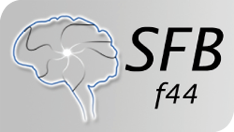Project 10:
Epigenetic mechanisms in aberrant memory regulation
Effective long-term treatment for fear and anxiety-related disorders is a continuing challenge. One emerging treatment strategy is combining exposure-based cognitive behavioural therapy (CBT) with cognitive enhancers. Key results from the 1st SFB funding period (FP) support the utility of this approach for long-term fear inhibition. Specifically, we provide evidence that histone deacetylase (HDAC) inhibitors and facilitating dopaminergic signalling act as cognitive enhancing strategies to rescue aberrant fear extinction consolidation in S1 (129S1/SvImJ) mice. Additional findings indicate that non-coding RNAs, including - microRNAs (miRNAs), and Cav1.3 channel-mediated signalling- may be additional promising targets to exploit for novel pro-cognitive properties supporting extinction memory formation. Building on results obtained in the 1st FP, we now aim to elucidate the how and where in the brain HDAC inhibition, enhancement of dopaminergic signaling, interference with non-coding RNAs- or Cav1.3 mediated-signalling can augment fear extinction to form a persistent and context-independent fear inhibitory memory. In addition, we aim to improve the tolerability of exposure based therapy by combining the therapeutic actions of non-sedative anxiolytic drugs which do not impair extinction learning and appropriate cognitive enhancers. Finally, we have started to identify potential epigenetic biomarkers in blood cells that can be associated with the sensitivity to and the extent of the therapeutic effect of exposure therapy in anxiety disorder patients. These highly translational questions will be addressed in collaboration with other members of the consortium and international collaborators. Revealing mechanisms via which rescue of impaired fear extinction can be achieved in a better tolerated, persistent and context-independent manner is expected to foster the rational development of novel cognitive enhancers which may be used as augmenting CBT adjuncts to treat anxiety disorders more effectively.






